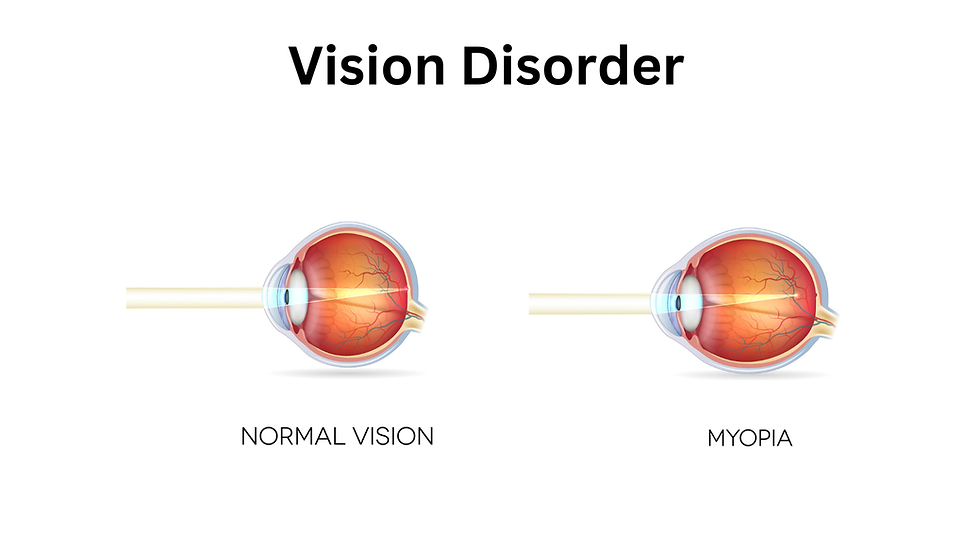Why Regular Eye Exams Are Crucial for Both Children and Adults
- visionopolisclinic
- May 8, 2025
- 2 min read
When was your last eye exam? For many people, vision care takes a backseat until problems arise—but regular eye check-ups are crucial for maintaining good vision and overall eye health. Whether you're a parent looking after your child's sight or managing your own, scheduling routine eye exams can make all the difference.

Why Are Regular Eye Exams Important?
Your eyes are not only windows to the world—they’re also windows into your health. A comprehensive eye exam can detect refractive errors (like myopia, hyperopia, and astigmatism), as well as early signs of serious eye diseases such as glaucoma, cataracts, and macular degeneration. In some cases, eye exams can even reveal signs of diabetes, hypertension, and other systemic health conditions before symptoms appear.
Eye Exams for Children
Children’s eye health plays a vital role in their learning and development. Vision problems can go unnoticed, especially if your child has never experienced clear vision to begin with.
Key reasons kids need regular eye exams:
Detecting vision problems early: Conditions like lazy eye (amblyopia) or crossed eyes (strabismus) are more effectively treated when caught early.

AMBLYOPIA Supporting learning: 80% of learning is visual. Clear vision is crucial for reading, writing, and classroom participation.
Preventing academic struggles: Uncorrected vision issues can lead to poor school performance and behavioral challenges.
Children should have their first comprehensive eye exam at 6 months of age, again at age 3, before starting school, and then every 1–2 years, depending on their vision needs.
Eye Exams for Adults
Adults also benefit greatly from routine eye check-ups, especially as vision needs change with age.
Key benefits for adults:
Updating prescriptions: Even slight vision changes can lead to headaches, eye strain, or blurred vision.
Early disease detection: Eye exams can catch conditions like glaucoma and retinal issues before vision loss occurs.

EARLY DISEASE DETECTION Managing screen time effects: With the rise in digital device use, many adults experience digital eye strain—which can be managed with proper guidance.
Adults aged 18–60 should have an eye exam every 1–2 years. After 60, yearly exams are recommended.
What Happens During an Eye Exam?
A comprehensive eye exam includes:
Vision testing with a refraction test
Eye muscle movement checks
Slit-lamp examination to view eye structures
Eye pressure test for glaucoma
Retinal exam, often with dilation
These tests help your eye doctor evaluate your overall eye health and identify potential problems early.
Conclusion
Regular eye exams are an essential part of preventive health care—for both children and adults. They ensure optimal vision, support learning, and help detect health conditions early. Don’t wait for symptoms to appear—schedule your comprehensive eye exam today and take a proactive step toward lifelong eye health.






Comments